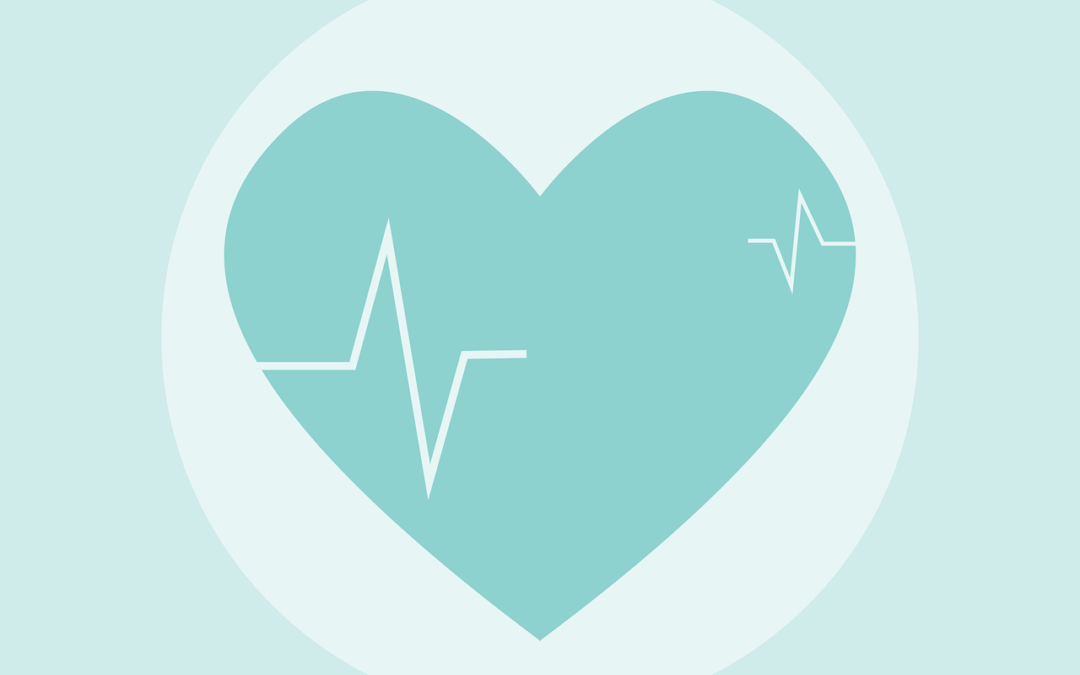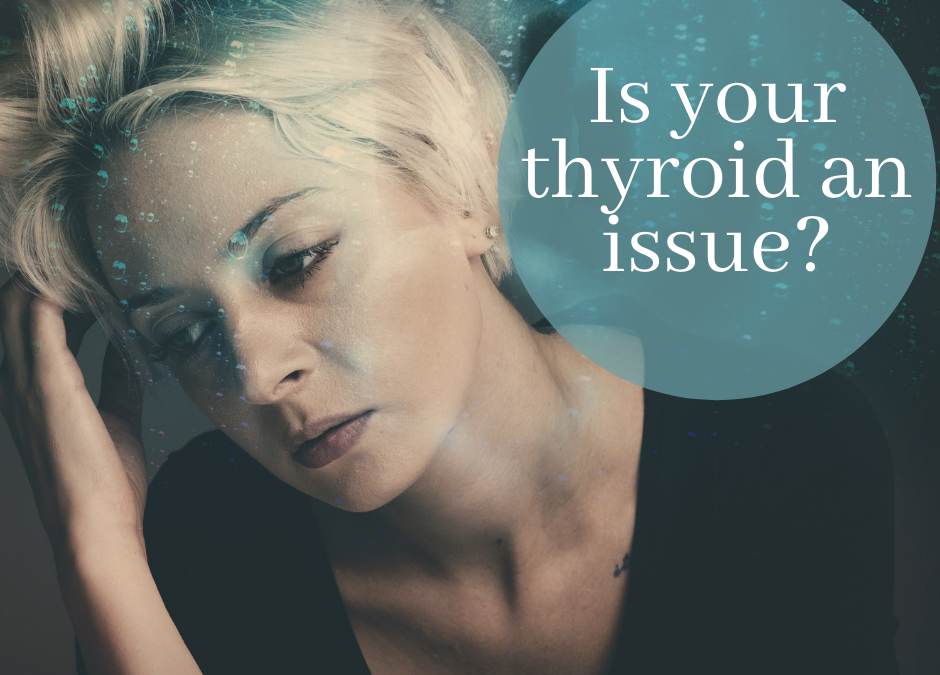Hashimoto’s Thyroiditis: Treating This Autoimmune Disorder With Naturopathic Medicine
A diagnosis of Hypothyroidism, or underactive thyroid, means that your thyroid gland is not producing high enough hormone levels to carry out its many roles in the body.
Thyroid hormones play roles in a wider range of physical functions than most of us realize, so when those hormone levels get out of whack, the entire body can be affected. There can be a number of reasons this happens, ranging from nutritional deficiencies to radiation, with one of the more common reasons being an autoimmune condition called Hashimoto’s Thyroiditis.
Hashimoto’s Thyroiditis Is More Common Than You May Think
Affecting approximately 10% of women over the age of 30, Hashimoto’s Thyroiditis is the most common cause of hypothyroidism. Some studies put the incidence of Hashimoto’s as high as five percent of the overall population.
What is Hashimoto’s?
The condition gets its name from the Japanese physician who first identified it in 1912. It’s important to understand that Hashimoto’s is an autoimmune disorder. In other words, with Hashimoto’s, your immune system somehow perceives that your healthy thyroid is a threat to your wellbeing, and attacks it in response.
Autoimmune disorders like this can be frustrating since they often don’t have a direct, easily identified cause. They can also be tricky to diagnose. In fact, up to 60 percent of people who have a thyroid issue don’t know that they have it.
Who Is At Risk Of Hashimoto’s?
Women
Certain conditions can make it more likely that you will develop Hashimoto’s. For example, women are from five to eight times more likely to develop the disease.
Previous Autoimmune Disease
Your risk is also highest at middle age. Having other autoimmune disorders (such as lupus, celiac disease, or rheumatoid arthritis) can also make you more vulnerable.
Gluten Intolerance
Some research has linked Hashimoto’s to diets high in gluten. Although gluten doesn’t directly cause Hashimoto’s, gluten consumption does seem to increase the risk for autoimmune disorders in general. And interestingly, people with celiac disease are three times more likely to have a thyroid problem.
Stress
Other research suggests a link between chronic stress and Hashimoto’s. This connection could be due to the interaction between stress and our immune systems.
What Are The Symptoms Of Hashimoto’s?
The symptoms of Hashimoto’s often build slowly, which is why they often go unnoticed. As the thyroid experiences more damage, many people find they become increasingly tired. In fact, overwhelming fatigue is one of the most common complaints with this disease.
You may also experience a long list of frustrating symptoms, including:
● Weight gain, fluid retention
● Muscle aches
● Thinning hair
● Dry skin
● Constipation
● Fertility problems
● Poor cold tolerance
● Depression, Anxiety, Irritability
● Memory issues
● Hoarseness
● Low libido
● Slow heart rate
● A lump at the base of the throat, due to an enlarged thyroid
Many of the symptoms listed above are easy to blame on other health issues – even simply growing older. However, the long term-effects of Hashimoto’s can greatly affect your quality of life. And over time, low levels of thyroid hormone can lead to elevated cholesterol levels. That’s why it’s important to seek help if you suspect Hashimoto’s.
How Is Hashimoto’s Diagnosed?
Many conventional medical doctors run just one test for thyroid problems – Thyroid Stimulating Hormone (TSH). However, because thyroid problems can be complex, the result doesn’t always provide a precise diagnosis. High TSH may well indicate that the body is trying very hard to stimulate an under-responsive thyroid gland, however, it doesn’t tell us why. And a normal TSH result does not rule out more complex issues.
For a thorough evaluation of your thyroid health, more in-depth testing is often required. After all, your body works as an integrated unit, and TSH is just one piece of the puzzle. Typically, we additionally test for thyroid antibodies, inflammatory markers, signs of infection, stress hormones, food sensitivity tests and digestive markers.
Help! I am Having Trouble Managing Hashimoto’s. What Can I Do?
Hashimoto’s is typically treated with a thyroid hormone supplement to restore the body’s levels. However, many patients have difficulty finding the exact level of supplementation to alleviate their symptoms.
A holistic approach aims to address the root cause of the autoimmune condition, in addition to supporting the thyroid and using thyroid hormone as needed. This usually means making improvements to your overall health and balancing other hormone levels to support the whole system.
Supplements For Hashimotos’s
Supplements that may help include:
● Selenium
● Vitamin B12
● Zinc
● Ashwagandha
Lifestyle changes To Support Thyroid Health
Good habits can have a positive effect on Hashimoto’s, including:
● Reduce the amount of sugar that you eat (and drink)
This includes sugar substitutes, which have been directly linked to Hashimoto’s. Artificial sweeteners can lower the number of “good” bacteria in your gut, which can negatively impact your immune system.
● Watch Your Gluten Intake
Gluten and autoimmunity are interconnected, so it is a good idea to reduce the amount of gluten in your diet. Quinoa and rice are both good replacements, as are gluten-free crackers made with flax seeds. Keep in mind that the goal is to add variety to the diet. Also avoid replacing all gluten products with highly processed high-starch substitutes.
● Focus on natural, high-fibre foods
Because of the important link between gut health and immunity, keep your gut in top shape by consuming enough fibre to keep things moving.
● Reduce stress
Yes, that’s easier said than done in today’s busy world! However, it’s also important to remember that looking after your own health (even if that means cutting back on your responsibilities) will ultimately make you better able to look after your loved ones and your other responsibilities. As the saying goes, you can’t pour from an empty cup, so taking care of yourself is step one in taking care of others.
Homeopathy and hypothyroidism
In addition to lifestyle and dietary changes and supplements, we can further individualize treatment by using homeopathic medicine. A study published in the 2014 journal Homeopathy found that both TSH and the thyroid antibody, anti-TPO, both normalized over the course of homeopathic treatment in children with either subclinical hypothyroidism or auto-immune thyroid. Research is growing in the field of homeopathic treatment and should be considered as a treatment option or adjunct.
If you recognize the symptoms of Hashimoto’s described above, or if you’ve been given a diagnosis but are having trouble managing your symptoms, let’s talk. Together we can get a handle on your symptoms so that you can start feeling like yourself again. Contact us to arrange your naturopathic assessment and get on a healing plan for your thyroid and overall health – 905-597-7201.
Are you WAVE aware? Electromagnetic fields
Are You Wave Aware? Tips to deal with electromagnetic fields Most of us are aware of the effects of smog on a hot summer’s day - we can see it, we can feel it and our cities even have warning systems in place to alert us when the air quality is poor. However,...
5 ways to rev up your energy
5 Ways to Rev Up Your Energy!One of the best indicators that you’re having a great day is the feeling that your energy is high, steady and that overall you feel good and can enjoy accomplishing the tasks at...
Is your thyroid working properly?
Is Your Thyroid Working Properly? Did you know that a tiny, butterfly-shaped gland nestled in your throat is responsible for producing and regulating some of the most important hormones in your body? This mighty gland is called the thyroid and while it’s...
Is your brain getting the right fats?
Are You Feeding Your Brain The Right Fats? If you believe that eating fats and oils is a no-no, you might be in for a surprise. Fat is a vital component to a balanced diet and is a...
How to know if you are overloaded with toxins
How to Know if You are Overloaded with Toxins? The body is a miraculous thing. For all the body’s parts and abilities there are corresponding systems designed to monitor what they’re experiencing and then decide whether what the body is experiencing is beneficial or...
Staying healthy while travelling
How to Stay Healthy While Travelling With winter in full swing now is the time our minds wander to warmer climates - and the opportunity to travel to them isn’t far behind! While we often seek out sunny destinations for a brief reprieve during these colder months,...
Lectins – What are they? Love them or leave them?
Lectins - What Are They? Love Them or Leave Them? We’re all familiar with that schoolyard rhyme: “beans, beans, they’re good for your heart….” As adults we roll our eyes, but have you ever wondered where the rest of that rhyme came from, or why foods like legumes are...

Do you have a ‘leaky gut?’
Do you have a Leaky Gut? If you’ve been searching for the root of on-going health issues that just won’t go away, the kind where your doctor - and maybe even your second and third doctor - have tried everything in their arsenals but have come up with only...

How to Get Glowing Skin from the Inside Out
Beautiful, healthy, glowing skin - is there anyone who doesn’t want that? A balanced complexion isn’t just beautiful, it can also signify the state of your health, youthfulness, even your happiness or stress level. Of course, these messages are happening on a...

Fatty liver disease – kids & adults
You or your child may have 'fatty liver disease' According to the Canadian Liver Foundation, 25-33% of Canadian adults have this disease. That's a lot of people in a population to have a disease - however, most likely don't even know it. It...



